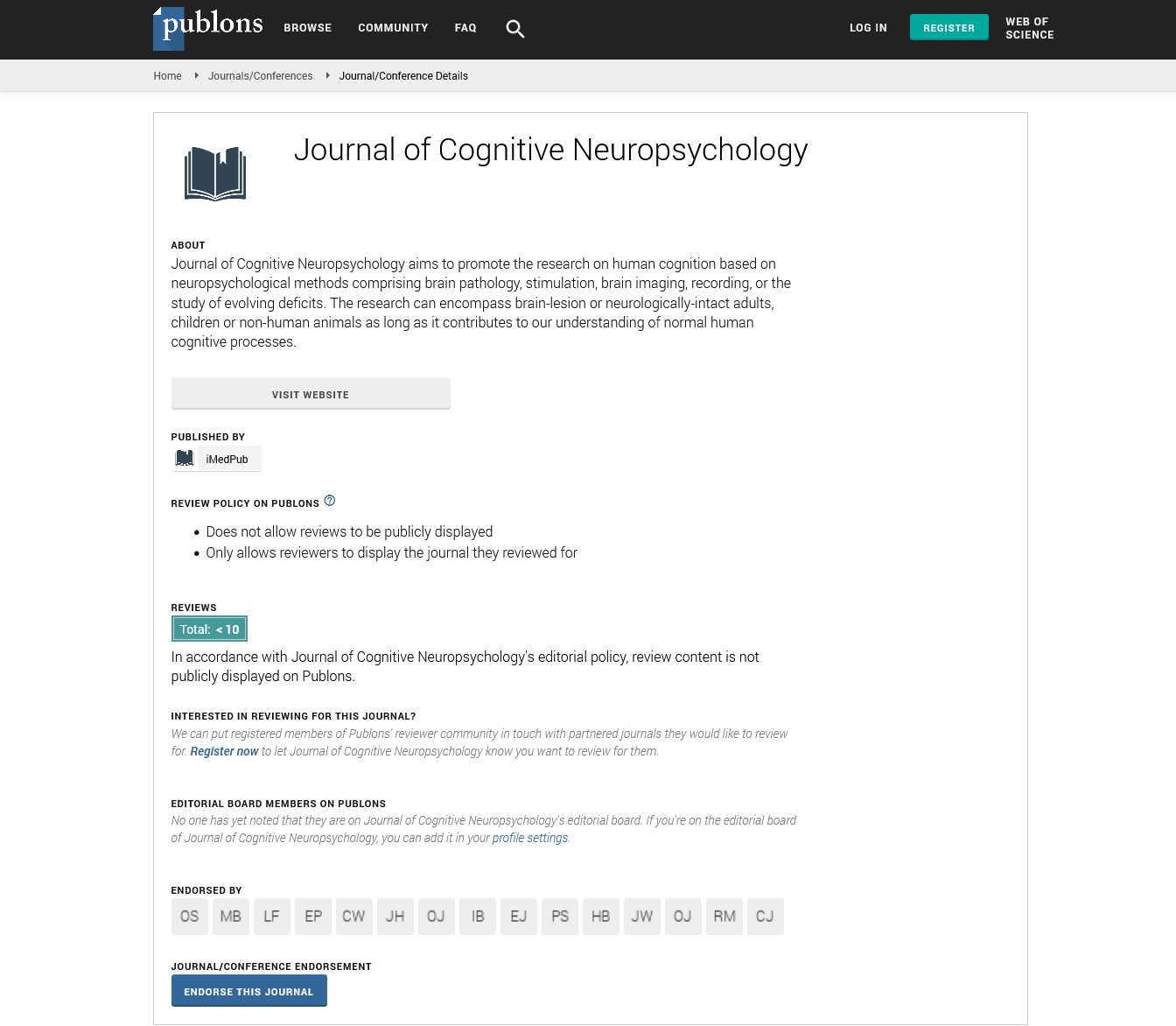Abstract
Vascular Dementia 2019: Is it vascular cognitive impairment or simply an existing adult ADHD getting worse? - Debanjan Pan- Karolinska University Hospital, Sweden
Case: This is the case report of Mr. Ashoke 61/M, his chief concerns are forgetfulness and having problems in making judgments.
Psychiatric History: Nothing significant other than chronic mild anxiety according to his wife. History revealed mild forgetfulness and difficulty in making plans since adolescence.
Present Medical History: Type-2 diabetes for the last 14 years and hypertensive; had 2 brief episodes of probable TIA.
Past History: No significant medical illness.
Neuropsychological Testing: MMSE and MoCA (Montreal Cognitive Assessment) scores were 21 and 22 respectively consistent with a diagnosis of VCIND. So, as he has a longitudinal h/o some executive dysfunctions including working memory, he was walked through DIVA scoring and Conner’s Adult ADHD rating scale and the scores were significantly in favor of an mature ADHD diagnosis (DIVA score >4 and Conner’s Adult ADHD rating scale t score >65). Attention-deficit hyperactivity disorder (ADHD) has historically been considered a disorder of childhood and adolescence. So, it is now recognized that ADHD symptoms persist into adulthood in up to 60% of individuals. Few cognitive symptoms that characterize ADHD (inability to provide sustained attention or mental effort, difficulty organizing or multi-tasking, forgetfulness) may closely resemble symptoms of prodromal dementia, also often referred to as mild cognitive impairment (MCI), particularly in patients over age 50. Additionally to the overlap in cognitive symptoms, adults with ADHD and those with MCI may also share a number of behavioral and psychiatric symptoms, including sleep disturbances, depression, and anxiety. Finally, both syndromes may be hard to differentiate clinically in older patients, particularly those who present to memory clinics with subjective cognitive complaints and fear the onset of a neurodegenerative process: is it ADHD, MCI, or both? Presently, it is not clear whether ADHD is associated with incipient dementia or is being misdiagnosed as MCI due to symptom overlap, as there exist data supporting either possibility. We aim to elucidate this concern by outlining three hypothetical ways in which ADHD and MCI might relate to each other, providing an overview of the evidence relevant to each hypothesis, and delineating areas for future research. There is a question of considerable significance, with implications for improved diagnostic particularly of early dementia, improved accuracy of disease prevalence estimates & better identification of individuals for targeted treatment. We have all misplaced keys, blanked on someone’s name, or forgotten a phone number. When you are young, you do not tend to pay much attention to these lapses, but as you grow older, you may worry about what they mean. Perhaps you start to talk about a movie you saw recently when you realize you cannot remember the title. You are giving directions to your house when you suddenly blank on a familiar street name. Or you find yourself standing in the middle of the kitchen wondering what you went in there for. Memory lapses can be frustrating, but most of the time they are not cause for concern. Age-related memory difference is not the same thing as dementia.
Discussion: VCIND (Vascular Cognitive Impairment Not Dementia) is a likely diagnosis with history of diabetes, hypertension and TIAs (even if his TIAs are image negative), but given a chronic persistent h/o mild cognitive impairment since adolescence, a differential diagnosis of Adult ADHD should be considered. Hence, those cases of VCIND (Vascular Cognitive Impairment Not Dementia) & MCI (Minimal Cognitive Impairment) with chronic h/o memory impairment, ADHD should be excluded. As we grow older, you experience physiological changes that can lead to glitches in brain functions you’ve always taken for granted. It takes longer to learn & recall information. You are not as quick as you used to be. Although, you may mistake this slowing of your mental processes for true memory loss. Mostly, if you give yourself time, the information will come to mind. So, while it’s true that certain brain changes are inevitable when it comes to aging, major memory problems is not one of them. That is why it is important to know the difference between normal age-related forgetfulness and the symptoms that may indicate a developing cognitive problem. These guideline has been developed to advise on the treatment and management of attention deficit hyperactivity disorder (ADHD). The guideline recommendations
have been developed by a multidisciplinary team of healthcare professionals, service users and carers, and guideline methodologists after careful consideration of the best possible evidence. It is intended that the guideline will be valuable to clinicians and service commissioners in providing and planning high-quality care for people with ADHD while also emphasising the value of the experience of care for them and their carers. In fact, the evidence base is quickly enhancing, there are a number of major gaps; future revisions of this guideline will incorporate noval scientific evidence as it develops. The guideline makes a number of research recommendations specifically to address gaps in the evidence base. On the other hand, it is hoped that the guideline will assist clinicians, people with ADHD and their carers by identifying the merits of particular treatment approaches where the evidence from research and clinical experience exists
Author(s): Debanjan Pan
Abstract | PDF
Share This Article
Google Scholar citation report
Citations : 8
Journal of Cognitive Neuropsychology received 8 citations as per Google Scholar report
Journal of Cognitive Neuropsychology peer review process verified at publons
Abstracted/Indexed in
- Google Scholar
- Publons
- MIAR
Open Access Journals
- Aquaculture & Veterinary Science
- Chemistry & Chemical Sciences
- Clinical Sciences
- Engineering
- General Science
- Genetics & Molecular Biology
- Health Care & Nursing
- Immunology & Microbiology
- Materials Science
- Mathematics & Physics
- Medical Sciences
- Neurology & Psychiatry
- Oncology & Cancer Science
- Pharmaceutical Sciences
